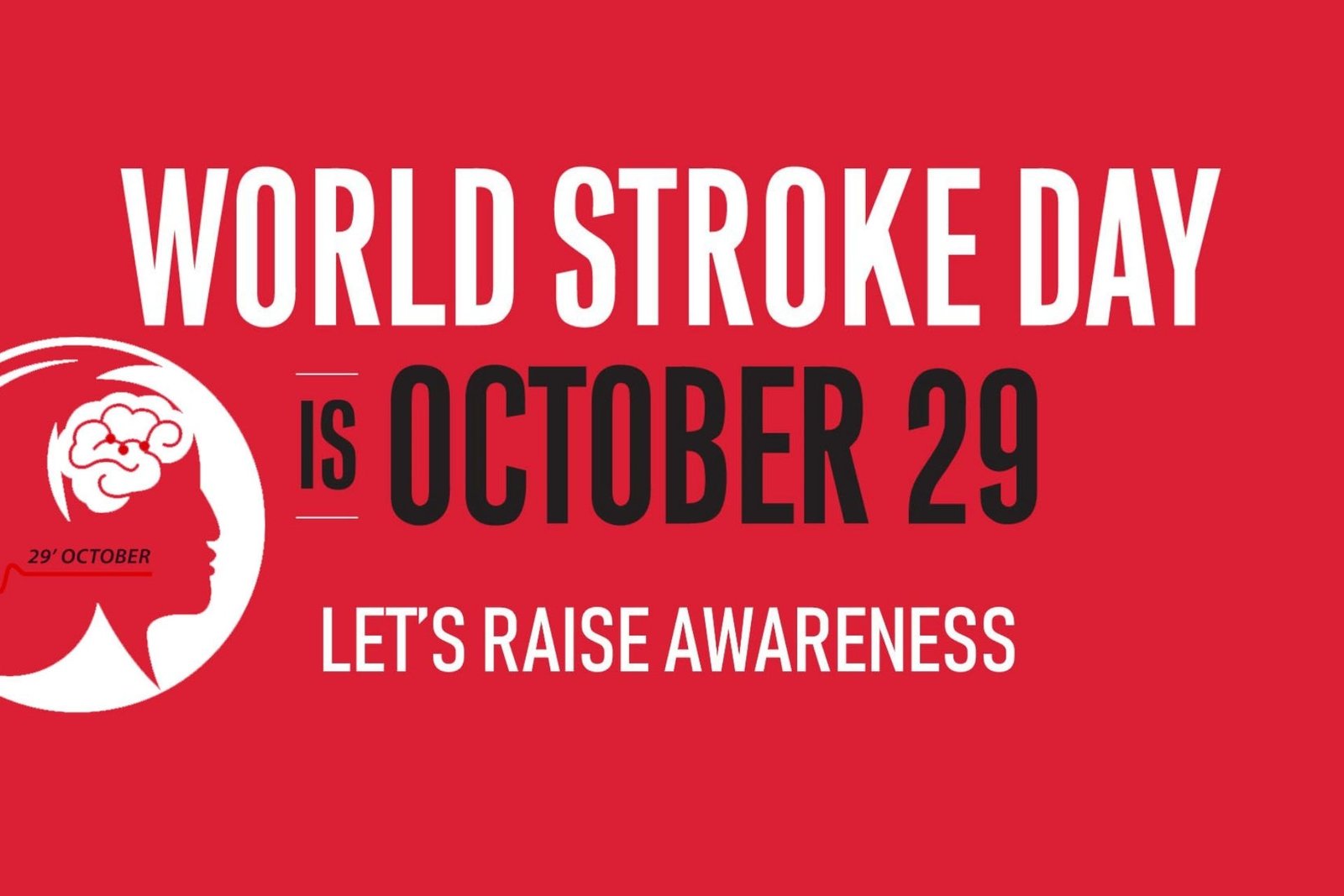World Stroke Day 2021: One in every four people will suffer a stroke during their lifetime. According to WHO, it is the second leading cause of death and the third leading cause of disability. A stroke occurs when the blood supply to a specific part of the brain is interrupted or reduced. It deprives brain tissue of vital nutrients and oxygen, causing the cells to die. When someone is having a stroke, it is critical to act quickly because every second counts.
World Stroke Day (October 29, 2001) is an annual event that focuses on raising awareness of stroke symptoms through a campaign that highlights what can be saved if we all recognise the signs of a stroke and call an ambulance immediately.According to the Indian Stroke Association, 17 million people have a stroke each year, with six million dying and five million permanently disabled.”Being overweight or obese, being physically inactive, heavy drinking, drug use, cigarette smoking, high blood pressure, high cholesterol, diabetes, obstructive sleep apnea, cardiovascular diseases such as abnormal heart rhythm, heart failure, and a family history of stroke are all risk factors for stroke. Other factors such as age, race, gender, and hormones can also be causes of stroke “Senior Consultant Interventional Cardiologist, AMRI, Kolkata, Dr. P K Hazra.

Our lifestyle choices and habits may influence our stroke risk. While healthy habits can significantly reduce it, unhealthy ones can make us more vulnerable.Here are some everyday lifestyle habits that may put you at risk of having a stroke.Diet high in saltPeople who eat a high-salt diet or diets high in saturated fats, trans fats, and cholesterol are at an increased risk of stroke and heart disease. “Consuming a lot of packaged and canned foods can also increase your risk of stroke due to high salt and nitrate preservatives. A high-salt diet raises blood pressure and is a major risk factor.
Dietary management can reduce the risk of stroke by 30% “Dr. Praveen Gupta, Principal Director and Head of the Department of Neurology at Fortis Memorial Research Institute in Gurugram, agrees.Inactive way of lifeThose who are couch potatoes or do not exercise on a regular basis may be at a higher risk of stroke. “Sedentism and obesity are major risk factors for stroke. Because they increase the risk of stroke by causing an increase in other health conditions such as obesity, high blood pressure, high cholesterol, and diabetes. Regular physical activity can reduce your risk of having a stroke.
A simple exercise like walking for 150 minutes per week can significantly reduce the risk of stroke “Dr. Gupta saysconsuming alcoholic beveragesIf you think you drink too much alcohol, now is the time to cut back if you want to avoid a stroke. Excessive alcohol consumption can raise blood pressure and increase the risk of stroke.
According to the Centers for Disease Control and Prevention, it also raises triglyceride levels, a type of fat in your blood that can harden your arteries. “Excessive alcohol use increases the risk of hemorrhagic stroke by weakening the arterial wall,” explains Dr. Gupta.Tobacco use and smokingThe main risk factor for stroke is smoking and tobacco use.

Cigarette smoking can harm your heart and blood vessels, increasing your chances of having a stroke.”Cigarette nicotine raises blood pressure, and cigarette smoke carbon monoxide reduces the amount of oxygen your blood can carry. Even if you don’t smoke, inhaling secondhand smoke from others can increase your risk of having a stroke.
After quitting smoking for five years, your risk may be close to that of the general population “in accordance with the CDC (Centers for Disease Control and Prevention)Insomnia or sleep deprivationSleep deprivation appears to be a major risk factor for stroke. Sleep deprivation causes an increase in sympathetic hormones such as catecholamines, which raise blood pressure and sugar levels, resulting in increased oxidative stress and vessel wall injury. A good night’s sleep restores health.
_______
World Stroke Day | Don’t forget to follow us on Twitter @njtimesofficial. To get the latest updates





